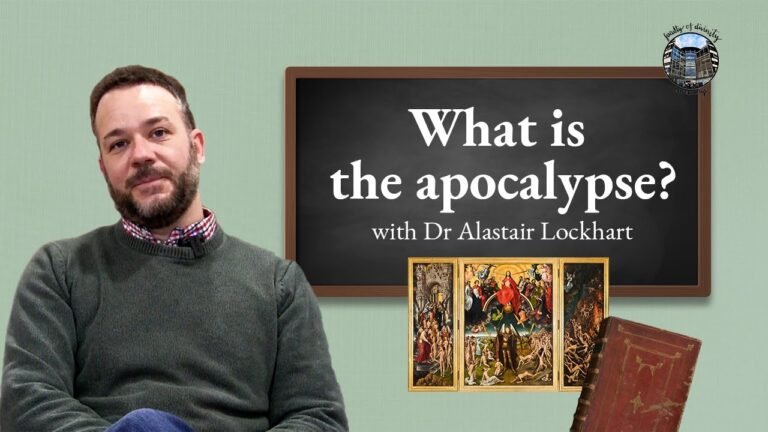Understanding the Concept of the Apocalyptic
In a world increasingly captivated by visions of dystopia, the term apocalyptic has taken on new significance, evoking images of societal collapse, environmental catastrophe, and existential threats. But what is apocalyptic, really? Beyond its dramatic connotations, this concept invites us to explore the profound themes of transformation, renewal, and the human spirit’s resilience in the face of adversity. As we delve into the layers of apocalyptic narratives in literature, film, and culture, we uncover not just fears of the end, but also the hopes and lessons that emerge from our most challenging moments.
What defines an apocalyptic scenario today?
An apocalyptic scenario today typically involves widespread disaster, societal collapse, and existential threats, often linked to climate change, nuclear war, or pandemics.
- Definition: Apocalyptic refers to events or scenarios that signify the end of the world or the ultimate destruction of civilization, often depicted in religious texts or literature.
- Themes: Common themes associated with apocalyptic narratives include cataclysmic events, moral reckoning, and the struggle between good and evil.
- Cultural Impact: Apocalyptic concepts have influenced various aspects of culture, including movies, books, and art, reflecting societal fears and hopes for renewal.
- Historical Context: Throughout history, apocalyptic beliefs have emerged in response to social upheavals, wars, and natural disasters, often shaping religious and philosophical perspectives on existence.
What is the meaning of being apocalyptic?
To be apocalyptic signifies a profound connection to the themes of total destruction and cataclysmic change, particularly in relation to the world as we know it. It evokes imagery of endings and transformations, suggesting a scenario where existing structures, beliefs, and even life itself are obliterated. This concept often serves as a backdrop for narratives that explore human resilience in the face of overwhelming odds.
Furthermore, the apocalyptic lens frequently encompasses predictions of future calamities, igniting our imaginations with visions of chaos and upheaval. Such narratives encourage a deeper examination of our current trajectory and the potential consequences of our actions. The fascination with the apocalyptic invites reflection on what it means to rebuild and redefine life amidst the ashes of the old, pushing us to confront both our fears and hopes for the future.
What is the meaning of go apocalyptic?
Apocalyptic refers to the idea of total destruction, often associated with the end of the world or significant cataclysmic events. It evokes visions of a world on the brink, where dire warnings highlight critical issues such as depletion of natural resources. This concept serves as a powerful reminder of the fragility of our existence and the urgent need for awareness and action in the face of looming threats.
Can you provide an example of an apocalypse?
Apocalypse often evokes images of catastrophic events that bring about widespread destruction and despair. One of the most poignant examples is the nuclear bomb attack on Hiroshima during World War II. This tragic event serves as a stark reminder of the devastating consequences of warfare and the profound impact it can have on humanity.
The sheer scale of devastation experienced in Hiroshima was unprecedented. The explosion obliterated the city, leaving behind a landscape of ruins and loss. Survivors faced not only physical destruction but also emotional and psychological scars that would linger for generations. The grim reality of this apocalypse highlights the fragility of life and the importance of peace.
In the aftermath, the world grappled with the implications of such destructive power. Hiroshima stands as a symbol of both tragedy and resilience, reminding us of the need for global cooperation to prevent future apocalyptic scenarios. It urges us to reflect on our choices and strive for a future where humanity prioritizes understanding and harmony over conflict.
Unraveling End Times: A Deep Dive into Apocalyptic Theories
As humanity grapples with existential challenges, apocalyptic theories have emerged as a compelling lens through which to examine our future. From ancient prophecies to modern narratives, these theories reflect deep-seated fears and hopes about the end of civilization. They often serve as cautionary tales, warning us of the consequences of our actions—be it environmental degradation, technological overreach, or geopolitical tensions. By exploring these diverse interpretations of the end times, we can gain insight into our collective psyche and the values we hold dear.
In an era marked by rapid change and uncertainty, the allure of apocalyptic narratives continues to captivate our imagination. These stories not only highlight the fragility of our existence but also inspire resilience and community action in the face of adversity. As we dissect the varied dimensions of these theories, we uncover a rich tapestry of human experience that transcends cultures and epochs. Ultimately, the exploration of end times serves as a mirror, reflecting both our darkest fears and our most profound aspirations for a sustainable and hopeful future.
Beyond Destruction: The Cultural Impact of Apocalypse Narratives
Apocalypse narratives have long captivated audiences, serving as a mirror reflecting societal fears and aspirations. These stories often explore themes of resilience, transformation, and the human spirit’s capacity to endure in the face of overwhelming odds. From classic literature to contemporary films, the portrayal of apocalyptic scenarios challenges us to reconsider our values and relationships, urging a collective introspection on what truly matters in our lives. As we witness the collapse of familiar structures, these narratives invite us to envision new possibilities and pathways for renewal, highlighting the potential for rebirth amidst chaos.
Moreover, the cultural impact of these narratives extends beyond mere entertainment; they shape our understanding of community and belonging. By depicting the struggles and triumphs of individuals during catastrophic events, these stories foster a sense of solidarity and shared purpose. They encourage dialogue about environmental issues, social justice, and the ethical implications of our choices, prompting audiences to engage with pressing global challenges. In this way, apocalypse narratives not only entertain but also empower, providing a canvas for reflection and a catalyst for change in an increasingly uncertain world.
From Myths to Modernity: Exploring Apocalyptic Thought
Throughout history, apocalyptic thought has shaped cultures and influenced civilizations, weaving a complex tapestry of beliefs that range from ancient prophecies to contemporary interpretations. Myths of destruction and renewal have often served as cautionary tales, reminding societies of their vulnerabilities and the consequences of moral decay. These narratives, whether rooted in religious texts or folklore, provide a framework for understanding existential threats, urging populations to reflect on their values and behaviors in the face of impending doom.
As we transition into modernity, apocalyptic themes have evolved, reflecting the anxieties of contemporary society. The Cold War, climate change, and technological advancements have given rise to new interpretations of the end times, blending traditional beliefs with scientific concerns. This shift has led to a proliferation of apocalyptic literature and media, captivating audiences while sparking debates about humanity’s future. The urgency of these narratives resonates particularly with younger generations, who grapple with uncertainty and seek meaning amid chaos.
In this ongoing exploration of apocalyptic thought, the interplay between myth and reality becomes increasingly significant. While ancient stories often focused on divine intervention and moral reckoning, today’s discussions emphasize collective responsibility and proactive solutions. As we navigate the complexities of modern life, apocalyptic scenarios serve not just as warnings but as catalysts for change, inspiring individuals and communities to forge a more sustainable and ethical path forward. The evolution of these ideas highlights the enduring power of apocalyptic thought to provoke critical reflection and drive transformative action in our ever-changing world.
Understanding what is apocalyptic extends beyond mere predictions of destruction; it invites us to reflect on human resilience, the fragility of civilization, and the hope that often emerges from chaos. By exploring the narratives that shape our fears and aspirations, we gain insight into our collective psyche and the values that define us. Ultimately, the apocalyptic lens challenges us to confront our realities and envision a future where renewal and transformation are possible, reminding us that even in darkness, there is the potential for light.







